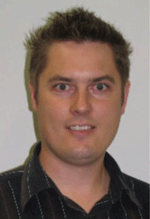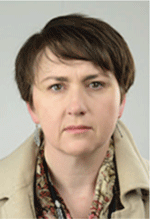Stratigraphic and structural architecture across the central North West Shelf – implications for Triassic petroleum systems
Steve Abbott A B , Claire Orlov A , George Bernardel A , Chris Nicholson A , Nadege Rollet A , Duy Nguyen A and Merrie-Ellen Gunning AA Resources Division, Geoscience Australia, GPO Box 378, Canberra ACT 2601, Australia.
B Corresponding author email: Steve.Abbott@ga.gov.au
The APPEA Journal 59(2) 832-839 https://doi.org/10.1071/AJ18154
Accepted: 1 April 2019 Published: 17 June 2019
Abstract
The Triassic succession in the Roebuck Basin and parts of the adjacent sub-basins is the subject of a regional mapping program at Geoscience Australia that addresses stratigraphic and structural aspects of exploration risk. Seismic horizons of regional significance are integrated into a new tectonostratigraphic framework that also includes lithostratigrapy, gross depositional facies and tectonic extension phases. The main Triassic depocentre extends over the Beagle Sub-basin and north-east Exmouth Plateau, with a re-entrant into the Bedout Sub-basin. A smaller north-east oriented depocentre is located over the outer Rowley Sub-basin and extends into the Barcoo Sub-basin. The Triassic succession thins markedly between these depocentres over a regional palaeogeographic high. Above a basal marine mudstone, the Triassic succession is mainly fluvio-deltaic, but outboard the uppermost Triassic succession it is carbonate-rich. The Rowley depocentre is unusual in that it comprises Lower–Middle Triassic volcanics and Middle–Upper Triassic carbonate-rich facies. Syn-depositional half graben in the Barcoo Sub-basin extend part-way into the adjacent Roebuck Basin. The Roebuck Basin structural architecture is simpler than the neighbouring sub-basins. The contiguous development of fluvio-deltaic facies across the main Triassic depocentre indicates that the Middle Triassic petroleum system may extend beyond the Bedout Sub-basin. Syn-depositional extension may have formed isolated sub-basins favourable for source rock deposition in the Barcoo Sub-basin. The Triassic carbonate play may also be of interest, as carbonate build-ups are locally well imaged in seismic profiles.
Keywords: Barcoo Sub-basin, Beagle Sub-basin, Bedout Sub-basin, Brigadier Formation, depositional system, Exmouth Plateau, extensional tectonics, gross depositional facies, hydrocarbon play, Locker Shale, Lower Keraudren Formation, Mungaroo Formation, Roebuck Basin, Rowley Sub-basin, sequence stratigraphy, Upper Keraudren Formation.

Stephen (Steve) Abbott earned his qualifications in Sedimentary Geology from Flinders (Hons, 1987) and James Cook (PhD, 1994) universities. He joined the Energy Systems Branch at Geoscience Australia in 2013, where he works on regional tectonostratigraphic studies of the NWS. Steve’s past roles include mineral exploration (mainly for sedimentary uranium in central Australia), teaching and research (Southern Cross University, James Cook University and the University of Tasmania) and regional mapping with the Northern Territory Geological Survey. Steve is President of PESA-ACT. |

Claire Orlov is a geoscientist in the North West Margin Energy Systems Section in the Resources Division of Geoscience Australia. She gained her BSc Honours degree in Geology from the University of New South Wales in 2013 and joined Geoscience Australia in 2014 as part of the graduate program. Her current role is focussed on investigations of regional structural geology on the offshore NWS of Australia. Claire is a member of PESA ACT. |

George Bernardel is a geoscientist in the North West Margin Energy Systems Section in the Resources Division of Geoscience Australia. He gained his BSc (Honours) in Geophysics from the University of Sydney in 1986 and joined Geoscience Australia in 1995. His current role in the project is the seismic mapping of Triassic sequences across the Roebuck and adjoining basins of the NWS. |

Chris Nicholson is a Senior Geoscientist at Geoscience Australia and Section Leader for the North West Margins Energy Studies. Chris and his team are currently undertaking a regional prospectivity study of the Triassic interval across the central NWS with a focus on Triassic and older source rock potential. Immediately before this, Chris was involved in hydrocarbon prospectivity studies and CO2 storage assessments in the Browse Basin. He has also worked on hydrocarbon prospectivity studies of Australian frontier offshore basins, including the northern Perth, Mentelle and Bight basins and the Vlaming and Bremer sub-basins. Chris graduated with a BSc (Hons) in Geology from the Australian National University in 2000. Chris is a member of PESA. |

Nadege Rollet is a Senior Geoscientist in Geoscience Australia’s Resources Division, Energy Systems Branch. Nadege is currently investigating the petroleum prospectivity of the central NWS of Australia. Nadege graduated from the University of Paris – Pierre et Marie Curie (France) where she obtained a MSc and a PhD (1999) in Geology and Geophysics. Her studies focussed on the structural framework and geodynamics of the Ligurian Sea (western Mediterranean). Since joining Geoscience Australia, Nadege has contributed to marine surveys around Australia, assessments of the petroleum prospectivity, seepage studies and CO2 storage of Australian sedimentary basins. Nadege is a member of PESA. |

Duy (Victor) Nguyen is a Senior Petroleum Engineer in Geoscience Australia’s Resources Division, Energy Systems Branch where he is working on the Browse and Roebuck basins. He holds BE and ME (Petroleum Engineering) degrees from the University of New South Wales. As part of his degrees, Victor researched the techno-economics of CO2 geological sequestration in Australia. Victor has five years of oil and gas industrial experience working for Schlumberger in Australia, Malaysia, India, the Middle East and Africa. Since 2009, Victor has worked on the assessment of the CO2 geological storage potential of the Bonaparte, Gippsland and Browse basins. |

Merrie-Ellen Gunning has over 20 years of experience in the oil and gas industry where she has performed a diverse range of roles from strategic planning, business development and operations management, to technical roles specialising in geophysics and exploration. Added to this is 5 years of experience in the aluminium industry across the value chain from extraction, mining bauxite and nepheline, through to refining alumina and smelting. In addition to her extensive knowledge of industry in Australia, her experience has included postings to Indonesia, Norway, the US, Russia and Singapore and overseeing operations across the world. She has an MBA from Melbourne Business School and a Bachelor of Applied Science in Geology. Merrie-Ellen joined Geoscience Australia in August 2015 and has worked on a wide range of prospectivity and CO2 storage projects. She led the Energy Systems Branch throughout 2017 and is currently acting as Section Leader for Energy Frontiers. |
References
Grain, S. L., Peace, W. M., Hooper, E. C. D., McCartain, E., Massapara, P. J., Marshall, N. G., and Lang, S. C. (2013). Beyond the Deltas: Late Triassic Isolated Carbonate Build-Ups on the Exmouth Plateau, Carnarvon Basin, Western Australia. In ‘The Sedimentary Basins of Western Australia, IV: Proceedings of the Petroleum Exploration Society of Australia Symposium’. (Eds M. Keep and S. J. Moss.) pp. 143–158. (Petroleum Exploration Society of Australia: Perth, WA)Grosjean, E., Edwards, D., Hong, Z., Sohn, J., Jinadasa, N., and Chen, J. (2018). Does the Phoenix South 1 Oil Represent an Extension of the Lower Triassic Petroleum System of the Perth Basin? In ‘20th Australian Organic Geochemistry Conference, Canberra, 3–7 December 2018’. (Australian National University, Canberra.)
Hannaford, C., Young, M., Lignum, J., Charles, A., and Mantle, D. (2016). Palynological Review of 37 Wells from the Browse, Canning, Northern Carnarvon and Roebuck Basins. MGPalaeo Report prepared for Geoscience Australia, June 2016. Unpublished.
Hannaford, C., Lignum, J., Charles, A., and Mantle, D. (2017). Palynology of Multiple Wells from the Roebuck, Northern Carnarvon and Browse Basins, Australia. MGPalaeo Report prepared for Geoscience Australia, March 2017. Unpublished.
Ignacio-Martinez, J., Totterdell, J. M., Edwards, D. S., Shafik, S., and Glenn, K. C. (1998). Roebuck and Offshore Canning Basins Biozonation and Stratigraphy, 1998, Chart 14 (Australian Geological Survey Organisation: Canberra.)
MacNeill, M., Marshall, N., and McNamara, C. (2018). New Insights into a Major Early-Middle Triassic Rift Episode in the NW Shelf of Australia. ASEG Extended Abstracts 2018, 1–5.
| New Insights into a Major Early-Middle Triassic Rift Episode in the NW Shelf of Australia.Crossref | GoogleScholarGoogle Scholar |
Maher, M. (2017). Structural Evolution of the Outer Roebuck Basin, Western Australia. Honours thesis, Curtin University, Bentley, WA.
Marshall, N. G., and Lang, S. C. (2013). A New Sequence Stratigraphic Framework for the North West Shelf, Australia. In 'The Sedimentary Basins of Western Australia 4: Proceedings of the Petroleum Exploration Society of Australia Symposium'. (Eds M. Keep and S. J. Moss.) pp. 1–32. (Petroleum Exploration Society of Australia: Perth, WA)
McHarg, S., I’Anson, A., and Elders, C. (2018). The Permian and Carboniferous Extensional History of the Northern Carnarvon Basin and Its Influence on Mesozoic Extension. ASEG Extended Abstracts 2018, 1–8.
| The Permian and Carboniferous Extensional History of the Northern Carnarvon Basin and Its Influence on Mesozoic Extension.Crossref | GoogleScholarGoogle Scholar |
Minken, J., Thompson, M., Woodward, J., Fernandes, F., and Fabrici, R. (2018). Tectonostratigraphic Framework of the Lower Keraudren Formation, Bedout Sub-Basin: Interplay of Tectonics and Sedimentary Systems. The APPEA Journal 58, 839–844.
| Tectonostratigraphic Framework of the Lower Keraudren Formation, Bedout Sub-Basin: Interplay of Tectonics and Sedimentary Systems.Crossref | GoogleScholarGoogle Scholar |
Nguyen, D., Rollet, N., Grosjean, E., Edwards, D. S., Abbott, S., Orlov, C., Bernardel, G., Nicholson, C., Kelman, K., Khider, K., and Buckler, T. (2019). The Roebuck Basin, Beagle and Barcoo Sub-basin well folio. The APPEA Journal 59, 920–927.
| The Roebuck Basin, Beagle and Barcoo Sub-basin well folio.Crossref | GoogleScholarGoogle Scholar |
O’Halloran, G., Paschke, C., Dempsey, C., Hurren, C., Scott, R., and Liu, G. (2018). Evolution of ‘Tres Hombres’; a Mid-Crustal Dome Structure within the Jurassic Northern Beagle Sub-Basin Western Australia; an Integrated Geophysical Investigation. ASEG Extended Abstracts 2018, 1–6.
| Evolution of ‘Tres Hombres’; a Mid-Crustal Dome Structure within the Jurassic Northern Beagle Sub-Basin Western Australia; an Integrated Geophysical Investigation.Crossref | GoogleScholarGoogle Scholar |
Ogg, J. G., Ogg, G., and Gradstein, F. M. (2016). 'A Concise Geologic Time Scale 2016' (Elsevier: Amsterdam, NL.)
Orlov, C., Abbott, S., Bernardel, G., Nicholson, C., Rollet, N., Nguyen, D., and Gunning, M. (2019). Triassic Horizon and Isochron Grids, Central North West Shelf [Digital Dataset]. Geoscience Australia, Commonwealth of Australia, Canberra. Available at http://pid.geoscience.gov.au/dataset/ga/128417
Taylor, L. (2015). Hannover South 1 (Wa-466-P, Roebuck Basin) Initial Well Completion Report. Unpublished.
Thompson, M., Wehr, F., Woodward, J., Minken, J., D’Orazio, G., Fernandes, F., Kongowoin, M., Hansen, L., Kuek, D., and Frabrici, R. (2018). Recent Exploration Results in the Lower Triassic, Bedout Sub-Basin: Australia’s Next Petroleum Province? The APPEA Journal 58, 871–877.
| Recent Exploration Results in the Lower Triassic, Bedout Sub-Basin: Australia’s Next Petroleum Province?Crossref | GoogleScholarGoogle Scholar |
Totterdell, J. M., Hall, L., Hashimoto, T., Owen, K., and Bradshaw, M. T. (2014). Petroleum Geology Inventory of Australia’s Offshore Frontier Basins. Record 2014/09. Geoscience Australia, Canberra.


